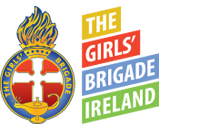Governance
We have a number of important policies that all parents, guardians, over 18 members and Companies should familiarize themselves with. These policies are in place to protect our members and our organisation.
If you think we have missed something out and would like to see a policy added, please do let us know by contacting Headquarters.
Child Safeguarding Policy 2018
Code of Behaviour
Codes of behaviour provide protection for everyone in The Girls’ Brigade Ireland, including children, employees and leaders. It is important that everyone involved has guidelines on what is expected, and what is not accepted, with respect to their behaviour. The code of behaviour for employees and leaders will help to create a supportive environment to provide a child-centred approach for the children involved in the Organisation.
The code of behaviour for children will help to provide a contract for the children to agree to and abide by.
Code of behaviour for employees and leaders.
The code of behaviour for employees and leaders has been categorised under five headings:
- Child-centred approach
- Best practice
- Inappropriate behaviour
- Physical contact
- Health & Safety
Child-Centred Approach
- Treat all children equally, treat all children as individuals.
- Listen to and respect children.
- Involve children in decision making, as appropriate.
- Provide encouragement, support and praise (regardless of ability).
- Use appropriate language (physical and verbal).
- Have fun and encourage a positive atmosphere.
- Offer constructive criticism when needed.
- Respect a child’s personal space.
- Encourage feedback from group.
- Use age-appropriate teaching aids and materials.
- Be aware of a child’s other commitments when scheduling rehearsals and activities e.g. school or exams.
- Be cognisant of a child’s limitations, due to a medical condition for example.
- Create an atmosphere of trust.
- Respect differences of ability, culture, race.
Best Practice
- Ensure that a parental consent form is completed for every child in each Company on an annual basis and that attendance records are maintained. (see appendix).
- Ensure that parental consents are received for use of photographs and contacting members directly by mobile phone. Parent’s/guardian’s wishes must be respected. See Appendix – Technology policy).
- Make parents, guardians, children aware of the Child Safeguarding Policy and procedures.
- Ensure that employees and leaders are familiar with the evacuation procedures for any premises in which they are working.
- Ensure that employees and leaders are familiar with the location of the first aid box and with any allergies, medical conditions and special needs of girls they are working with and how to deal with these.
- Be inclusive of children with special needs.
- Plan and be sufficiently prepared, both mentally and physically.
- Report any concerns to the Child Safeguarding team and follow reporting procedures.
- Report to the Child Safeguarding Team any concerns that they may have about a fellow employee or leader’s practice which may cause harm to a child or the reputation of the organisation and complete an incident form.
- Ensure all leaders are familiar with the Anti-Bullying Policy (see GB-21 Anti-Bullying Policy). Encourage children to report any bullying, concerns or worries and to be aware of Anti-Bullying Policy.
- Observe appropriate dress and behaviour.
- Evaluate work practices on a regular basis.
- Report and record any incidents and accidents.
- Keep parents/guardians informed of any issues that concern their children.
- Ensure proper supervision based on supervision ratios outlined in the General Safety and Management section and ensure that two leaders are present at the start and end of a session.
- Avoid, if at all possible, giving a lift to a child and if you do then make sure that parents/guardians have given prior consent.
- Recognise that special care is required at moments when discussing sensitive issues with members. Be aware that sometimes it is not possible or appropriate to answer questions for children and if necessary refer the matter back to parents.
- Maintain awareness around language and comments made. If a leader thinks that something they said may have caused offence or upset, then try to address it in a sensitive manner.
Inappropriate Behaviour
- Avoid spending excessive amounts of time alone with a child.
- Don’t use or allow offensive or sexually suggestive physical and/or verbal language.
- Don’t allow/engage in inappropriate touching of any form.
- Don’t hit or physically chastise children.
- Ensure that any socialisation with children outside of structured organisational activities is appropriate and cannot be misconstrued.
Physical Contact
- Ensure that any physical contact which is necessary as part of teaching the children activities cannot be deemed to be inappropriate.
- Avoid horseplay or inappropriate touch.
Health and Safety
- Don’t leave children unattended or unsupervised.
- Provide a safe environment.
- Be aware of accident and incident procedure and follow accordingly.
Complaints in relation to breaches of this Code of Behaviour for Leaders and Employees will be dealt with in line with The Girls’ Brigade Ireland Complaints Policy.
Please read our Privacy Statement by clicking here.
The Girls’ Brigade Ireland is committed to ensuring the safety and welfare of all children/young people with whom we work. We also try to ensure that children/young people have a positive and enjoyable experience when participating in Girls’ Brigade activities.
However, if a situation arises, when children/young people or their parents/guardians are not happy with the way the children/young people were treated while they were at a Girls’ Brigade activity either at Company, District or National level, a complaint may be made to the Captain of the Company or the National Board following the complaints procedure (see GB-22 Complaints Policy) until a satisfactory outcome has been reached.




